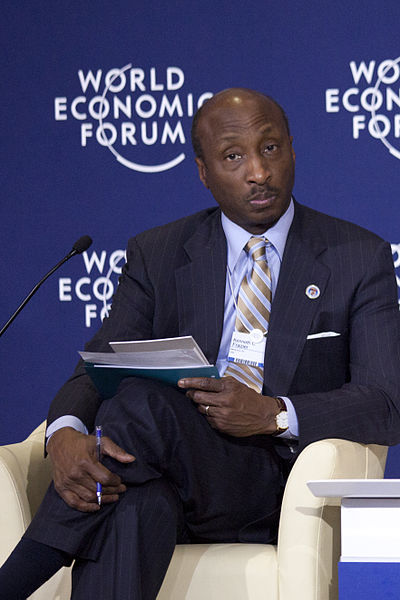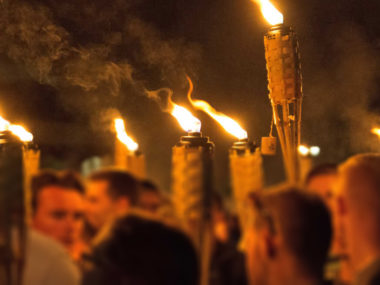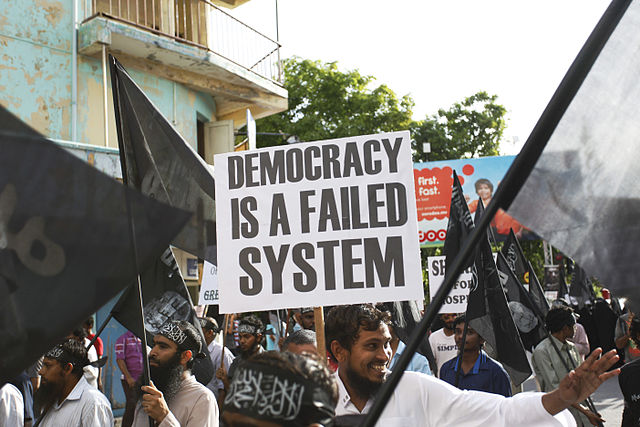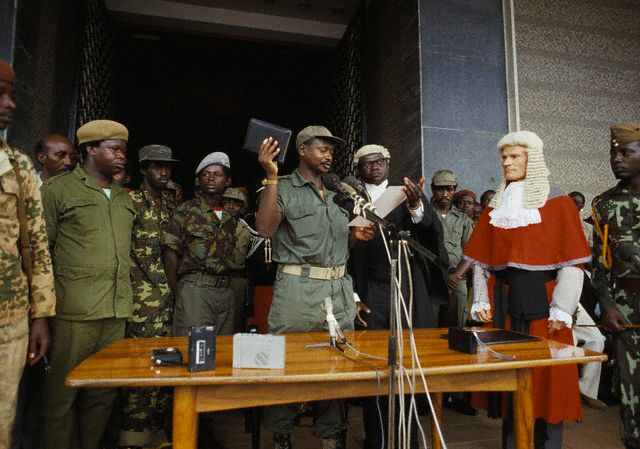Guest Post by Tricia Olsen for Denver Dialogues
President Trump has contested relationships with many groups—business wasn’t supposed to be one of them.
After Trump’s lackluster response to the white supremacist riot in Charlottesville, Va., Kenneth Frazier, Merck’s CEO since 2011, decided to resign from the President’s business advisory council. While some argue he isn’t a hero, in CEO-speak, his words were formidable: “Our country’s strength stems from its diversity and the contributions made by men and women of different faiths, races, sexual orientations and political beliefs. America’s leaders must honor our fundamental values by clearly rejecting expressions of hatred, bigotry and group supremacy, which run counter to the American ideal that all people are created equal.” The CEO of Under Armour and Intel resigned later that day, as well.
Yet, other big names made public statements that justified their choice to stay, including: Jeff Immelt, the trailblazing former CEO and current Chairman of General Electric; Mary Barra of General Motors; Alex Gorsky of Johnson & Johnson, among others.
Trump disbanded the council days later when eight members, in total, resigned. Yet, many who find themselves in the White House might ask whether to stay or go. Is it better to have a seat at the table? Or, risk being the subject of an early morning Twitter attack?
I recently published an article, which suggests that being on the outside may not be so bad. Why? In short, it lowers the costs of organizing. Non-state actors with access to the state have a lower incentive to organize on their own behalf; instead, threats from the state both increase incentives, and lower the costs of, overcoming collective action problems and organizing. Distance from the state can increase the efficacy of institutional entrepreneurs, or those who seek to transform the rules of the game or create new institutions.
Classic notions of collective action tell us that small, homogeneous groups are more likely to organize and thus, achieve their policy outcomes. Yet, the empirical record is flush with counterexamples for two reasons. First, many studies assume if groups overcome their collective action problem, they will achieve their objective; collective action is conflated with actually obtaining policy preferences. Second, the collective action literature largely assumes a passive or malleable state, not one that shapes the cost of organizing.
My research suggests that co-evolution, or the process by which the state and non-state actors shape one another, might occur in through two mechanisms: co-evolution by isolation and co-evolution by co-optation. Analyzing another business case (microfinance regulation in the context of strong states), I find that when business leaders were able to access the state easily, they did not form strong business associations and ultimately, were unable to achieve their policy preferences. Alternatively, when leaders were faced with a threatening state, they created strong, robust associations and were able to greatly influence regulatory outcomes.
In September, U.S. Commerce Secretary Wilbur Ross suggested it was wrong for CEOs to quit, stating that they gave up “an opportunity to influence policy.”[1] Yet, I argue business leaders will be more effective at influencing policy if they form a well-organized (ideally heterogeneous) associations with clear policy preferences.
Resigning from Trump’s business advisory council is not the end of the story. If business leaders expect to confront Trump on environmental policy, explicit racism, or immigration concerns and the Dream Act, they will need to do more.
Trump is here to stay, it seems. Business leaders will need to have tough conversations amongst themselves now so as to illustrate their cohesion when Trump calls (or Tweets) again.
[1] https://www.forbes.com/sites/maggiemcgrath/2017/06/05/donald-and-the-c-suite-the-ceos-still-serving-on-trumps-advisory-councils/#4f53cbaf476f
Tricia D Olsen is an Associate Professor, jointly appointed to the University of Denver’s Daniels College of Business and Korbel School of International Studies.







